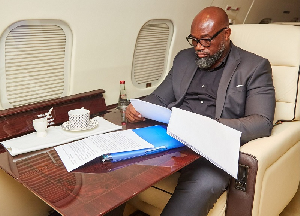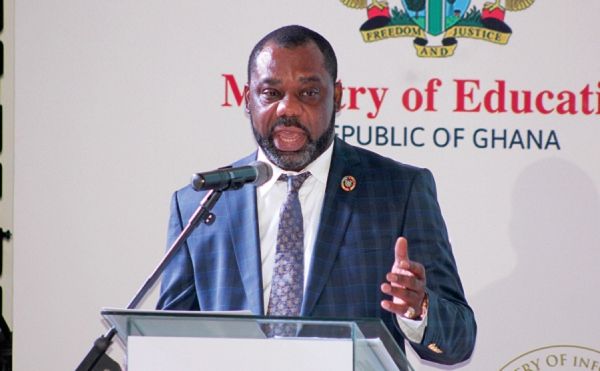IEA pushes for stricter 3% budget deficit ceiling

If realised, it would be consistent with the West African Monetary Zone (WAMZ) ceiling for member-states. It would also be a tighter rule than the four percent set by ECOWAS and a marked improvement on the five percent stipulated in the Fiscal Responsibility Act (FRA).
“We would recommend the more stringent WAMZ ceiling of 3 percent for Ghana, which has a greater chance of delivering debt sustainability than the current 5 percent in the FRA,” the IEA’s Director of Research, Dr. John Kwakye, said in a statement.
The five percent rule, introduced in 2018 within the Public Financial Management Act (PFMA), was heralded as a step in the right direction.
However, its usefulness was short-lived as the then Finance Minister, Ken Ofori Atta, invoked the ‘Escape Clause Mechanism’ due to the exceptional circumstance of COVID-19 – resulting in parliament suspending the Act. This culminated in a deficit of over 15 percent in 2020 and central bank financing of approximately GH¢40billion in 2022.
Additionally, public debt should be capped at 60 percent of GDP to maintain debt sustainability. Any breach of these ceilings should require parliamentary approval and a clear timeline for rectification.
To ensure these rules are adhered to, the public policy think-tank proposes establishment of an independent Fiscal Council. This Council would be appointed by the Public Services Commission and approved by parliament to ensure independence from the Executive branch. Comprising experts in economics, public finance and statistics, the Council would have its budget directly appropriated by parliament – charged to the Consolidated Fund. Its primary functions would include analysing government budgets, providing independent budget forecasts, assessing budgetary outcomes and risks, monitoring budget implementation and ensuring compliance with fiscal rules.
Furthermore, the IEA suggests integrating the Fiscal Rules, Fiscal Council and PFMA into a cohesive framework. Parliament should rigorously enforce its Appropriations Acts to ensure adherence to the Fiscal Rules. The framework should also include clear sanctions for breaches of its provisions, thus promoting accountability and transparency.
“Based on international best practices, instituting Fiscal Rules and a Fiscal Council would be the best way to anchor fiscal policy and macroeconomic stability internally and permanently, thereby helping position Ghana beyond IMF bailouts,” the IEA Director said.
Dr. Kwakye stressed the need for these reforms, citing Ghana’s history of recurring fiscal deficits and dependence on IMF bailouts. He stated that the prevailing fiscal practices have led to inefficiencies and often fostered corrupt practices. The proposed fiscal rules and independent Fiscal Council would provide the necessary oversight and analytical rigor to ensure fiscal responsibility.
Dr. Kwakye emphasised that lack of a strong analytical framework and effective monitoring mechanisms has allowed fiscal policy to be formulated on an ad-hoc basis.
He noted that an independent Fiscal Council, modelled after successful examples like the US Congressional Budget Office and UK Office for Budget Responsibility, could provide the oversight needed to prevent fiscal irresponsibility.





